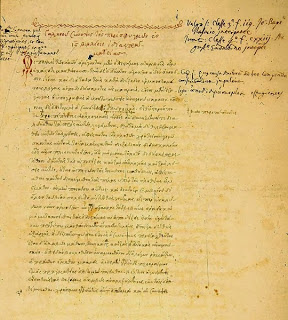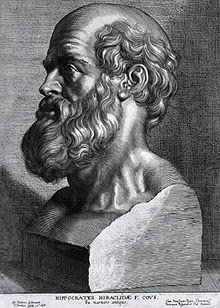

| Visitors Now: | |
| Total Visits: | |
| Total Stories: |

| Story Views | |
| Now: | |
| Last Hour: | |
| Last 24 Hours: | |
| Total: | |
From scroll to screen: the 500 year academic speed-up
How do academics deal with the chaos of online publishing these days, when it comes to evaluations for professional performance? Deans, chairs and grant reviewers must make hiring, tenure, promotion, and funding decisions based on academic track records. But what should be in that record?
We have been advocating our view that the social media, including things like blogs, Twitter, and so on as well as online publishing and open reviewing should count. Indeed, perhaps the successful professor should be expected to work in this rapid, open mode of spreading his/her ideas, results, and influence.
How that could be done is an important question. Chairs and deans tend to be conservative. They want to be fair, and not to be bowled over by chaff and resume-padding. We know some of the issues that relate to 'peer' review and so on that lead to just that. But the online world is chaotic, even as it's exciting, breathtaking, and vibrant. Many are and more will be considering ways to get away from simple bean-counting (publications, citations, etc.) and move towards more substantial criteria (we've posted on this before, e.g. here).
 |
| Galen. De pulsibus. (Manuscript; Venice, ca. 1550). This Greek manuscript of Galen’s treatise on the pulse is interleaved with a Latin translation. Wikimedia Commons |
Nothing New
Today we wanted just to put this in a different perspective. I am reading a very fine new book by Susan Mttern, called The Prince of Medicine, which is a life of the classic Greek physician Galen. This sentence, in its context, struck me: “Almost all significant medical writers had, apparently, commented on Hippocrates…”
 |
| Hippocrates of Cos; Rubens, 1638, Wikipedia |
Why this struck me is this: Galen's time (130-200 AD) was roughly 500 years after Hippocrates (and here we skip over who Hippocrates actually was, or wasn't). By then, all scholars worth their stethoscopes had commented on the works of the great master of Cos. His ideas had been lauded, picked on, updated, and debated. Various schools of thought, often as vitriolic as differences about selectionism or genetic determinism, chimed in to advocate their view, and critique Hippocrates, and over those five centuries, to critique each other.
It was a vigorous field of play, and must have included a lot of chaff along with the ideas that stuck around. One would have to know what's what to be able to evaluate who should be listened to, and who was just ranting or hacking away gratuitiously at the great founder of medicine.
Sound familiar?
We're lucky. The same is going on now, but we get to enjoy its variegated flavors every day. We don't have to wait five centuries and only judge retrospectively over the misty generations.
Actually, this is nothing new and it's not specific to the sciences. The humanities are going online as well, if more slowly. But in the last thousands of years the idea of descending trees of commentary were certainly part of western culture. This, as I understand it at least, was the Talmudic and Scholastic and Koranic scholarship through the millennia since the separation of these religions. It is likely also characteristic of Asian thought, but that's not something I know about.
Again, this took place over centuries, with the usual back and forth, sometimes polite, sometimes vitriolic. Just as science develops its schools of thought, so have religion and philosophy, based on their respective commentariats. But as with science even back in the classical days, things took generations.
We are lucky to live in our faster age, even if it can be too fast sometimes. Our professional world will have its shakeout. Ideas will come and go, win or lose in this arena. But we may all live to see it. If we can learn to use it creatively.
Source: http://ecodevoevo.blogspot.com/2013/12/from-scroll-to-screen-500-year-academic.html


